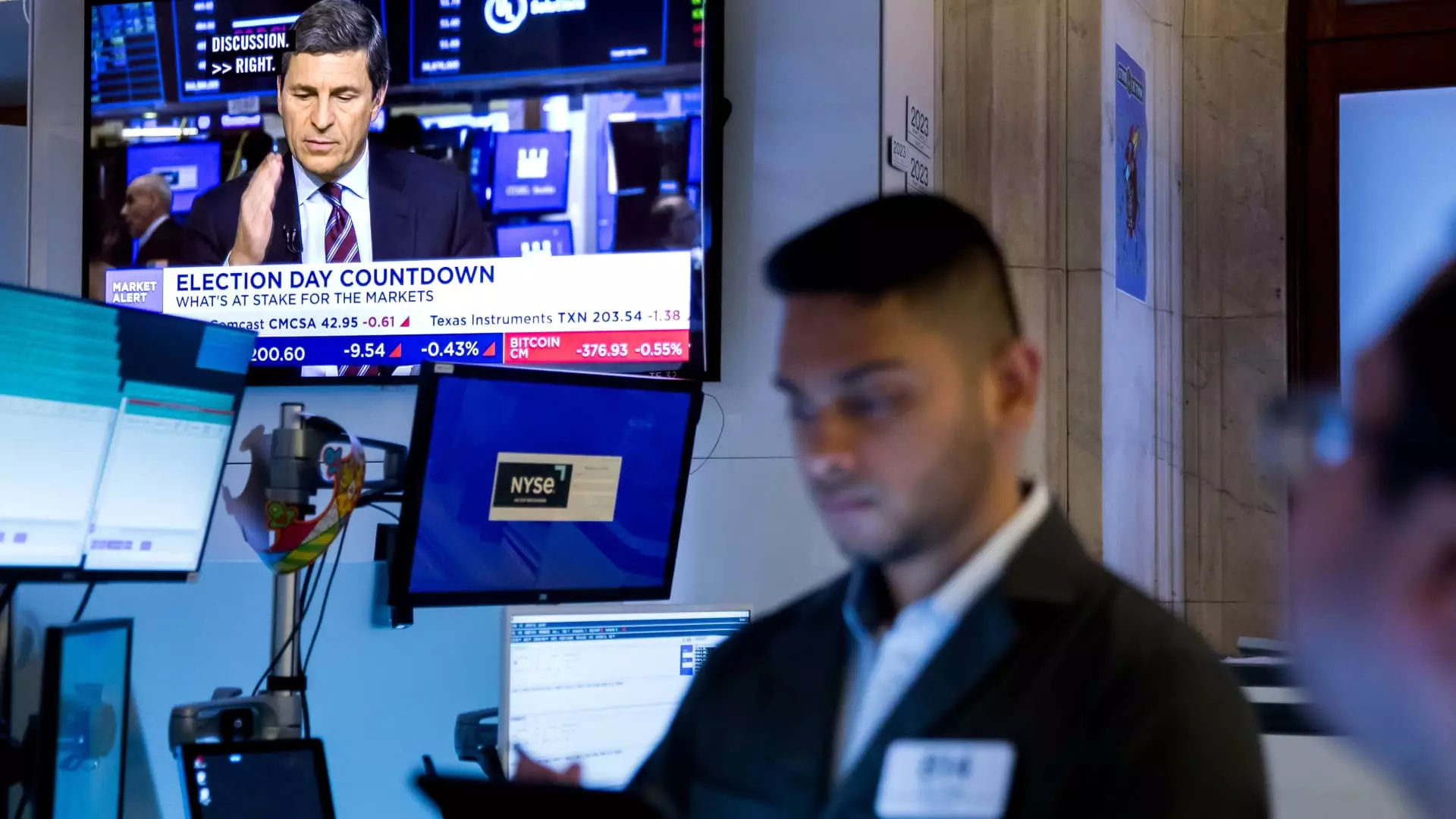As the stock market navigates the turbulent waters preceding a pivotal election day, investors are scrutinizing trends and predictions to guide their strategies. Daily newsletters, such as Stocks @ Night, serve as vital resources, delivering insights not only from the day’s market fluctuations but also foreseeing potential developments for the following trading session. Amidst this environment, several elements stand out that could significantly influence market dynamics.
In recent conversations, notable figures in the investment community have begun advocating for increased allocations in Chinese markets. David Tepper, a renowned investor known for his successful track record, publicly endorsed investments in China on CNBC. His comments seem to have had an immediate effect; for instance, the KraneShares CSI China Internet ETF (KWEB) surged by approximately 11%, while its counterparts such as iShares China Large-Cap ETF (FXI) and iShares MSCI China ETF (MCHI) followed suit with gains of 7.8% and 8.2%, respectively.
However, while initial reactions appear promising, a more in-depth analysis reveals a more complicated picture. These ETFs, although showing short-term upticks, are significantly below the highs reached shortly after Tepper’s endorsement. For example, KWEB has decreased by 17% since early October, suggesting that investor sentiment may be volatile or that the market is grappling with larger economic uncertainties that could negate the short-term gains.
Turning to the domestic front, the upcoming election day will see several states—Florida, North Dakota, Nebraska, and South Dakota—casting votes on the legalization of cannabis. The potential for expanded legal cannabis businesses has ignited investor enthusiasm, reflected in the price movements of associated stocks. Canopy Growth has witnessed a remarkable 24% rise in a month, indicating a market ripe with optimism.
Other players in the cannabis sector, including Aurora and Scotts Miracle-Gro, have also reported gains as public sentiment and legislative trends shift favorably. These developments suggest that as more states consider legalization, the ripple effects may extend beyond individual companies, potentially invigorating the entire sector.
A less discussed development is the growing attention on water-related stocks, especially given the severe drought conditions affecting vital regions like New York. Companies such as Energy Recovery and Global Water Resources have seen substantial increases, with the former up 9.6% over the last month and the latter showing a steady growth trajectory of about 16% over the past year.
The heightened awareness surrounding water scarcity, coupled with increasing investor focus on sustainable resources, positions these stocks as not only viable investments but also crucial entities in addressing future challenges. In an era where environmental sustainability is gaining traction, water stocks may soon become as popular as traditional energy sectors.
Market Volatility: Analyzing Fast Food and Chemicals
Diverse sectors illustrate the underlying volatility prevalent in the current market landscape. For example, Yum Brands, despite operating a portfolio of popular fast-food franchises like Taco Bell, has observed a decline of 1.8% over the last three months, suggesting that even well-established brands are feeling the strain. Reports of ongoing challenges, alongside slight blips in earnings, urge investors to exercise caution.
In the chemical industry, DuPont’s recent performance—which is currently 9% off its late September high—demonstrates that not even giants in the manufacturing sector are immune to market shifts. With earnings reports imminent, these companies are under significant pressure to deliver strong figures, as upcoming announcements could alter trajectories drastically.
Navigating this complex investment landscape requires not just a keen eye on market movements but also a broader understanding of the socio-political climate and its implications. As election day approaches, coupled with fluctuating stock prices across various sectors, investors must remain alert and adaptable. By analyzing trends and anticipating shifts, market participants can position themselves to take advantage of emerging opportunities or mitigate risks associated with this ever-evolving economic environment. In such uncertain times, informed decision-making will be paramount for those looking to safeguard and grow their investments.

